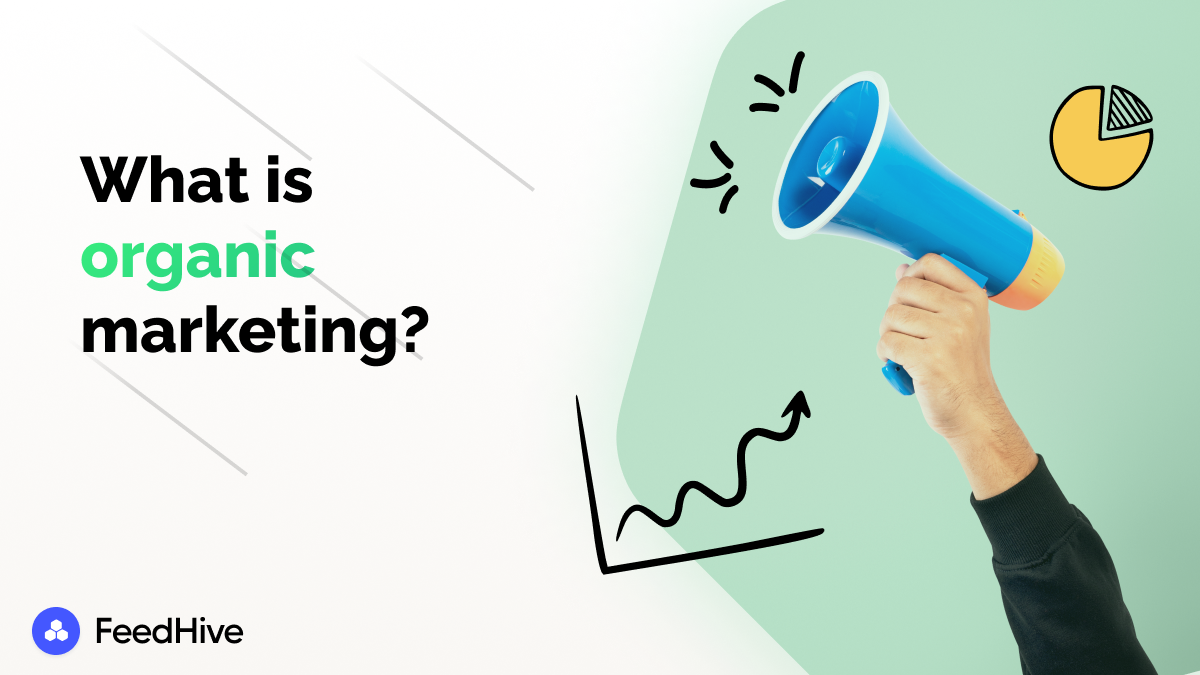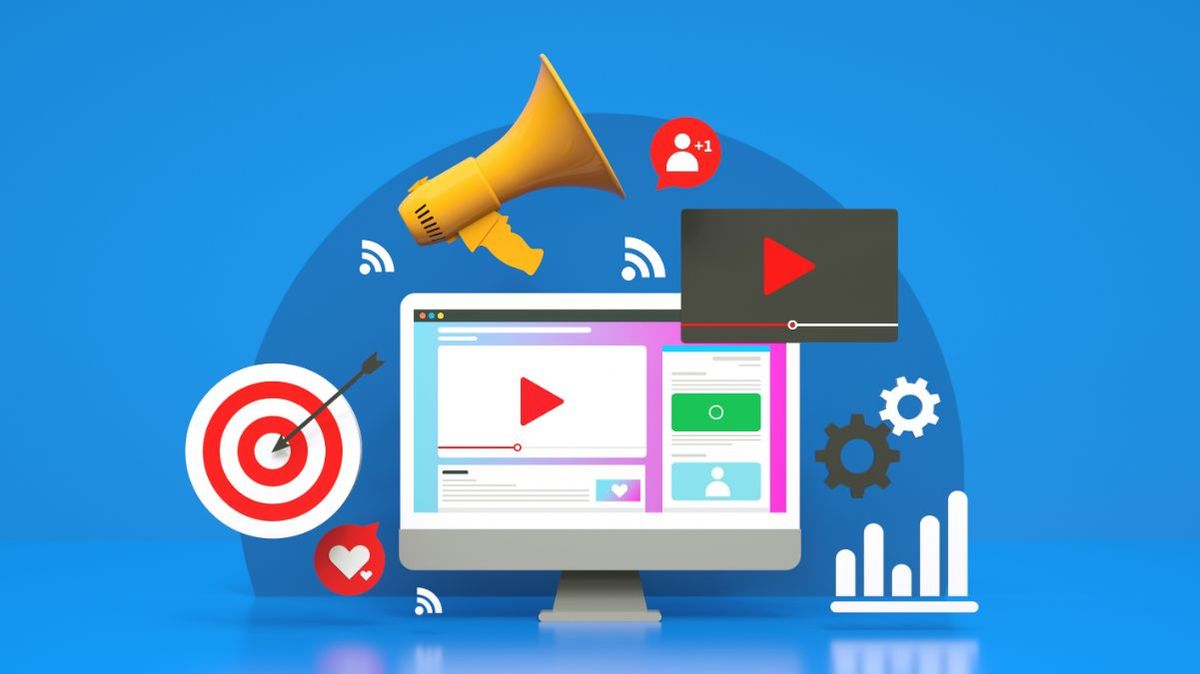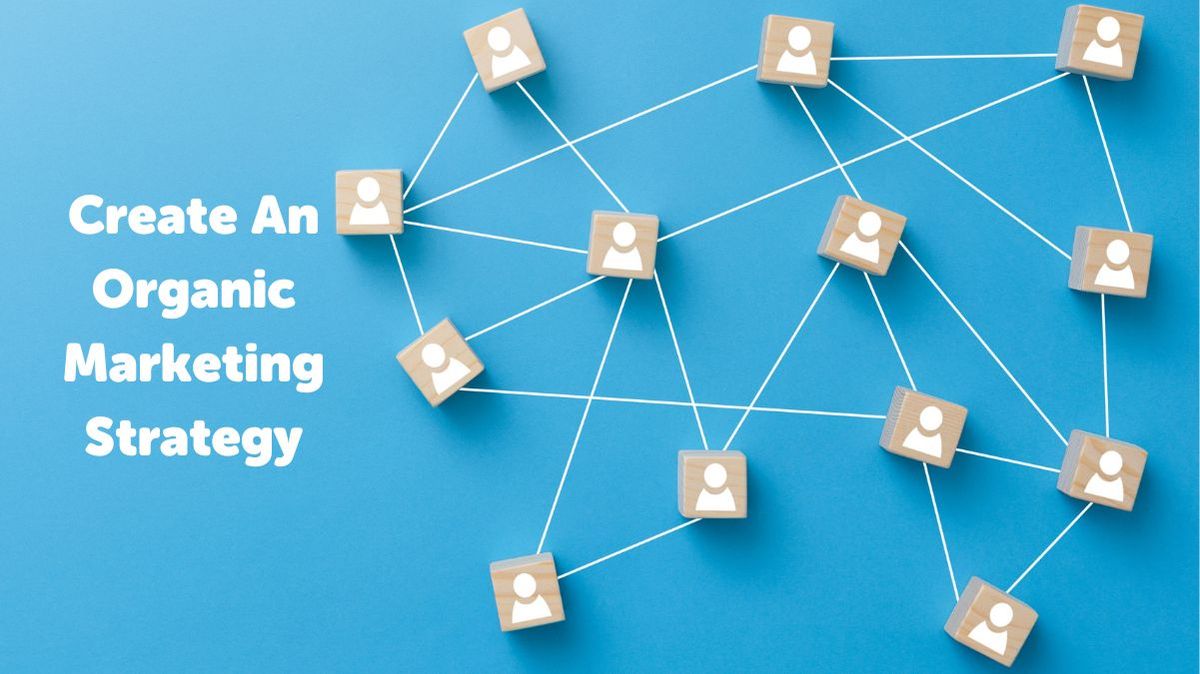
Did you know that organic search accounts for 53.3% of total web traffic? In a world where digital noise is louder than ever, standing out can feel like an uphill battle. But not with organic marketing by your side. It is not about flashy ads or quick fixes; it is about building relationships, trust, and a community around your brand. From understanding your audience to crafting content that resonates, it is a journey that rewards patience and creativity.
In this comprehensive guide, we'll explore the what, why, and how of organic marketing. Whether you're a seasoned marketer or just dipping your toes into digital waters, this blog is your roadmap to marketing success. So buckle up, and let's uncover what is organic growth.

Organic advertising is a long-term strategy to make a business/brand recognizable within a distinctive audience. The primary aim of using marketing is to increase brand awareness, build long-term customer relationships, and initiate business leads.
When it comes to implementing this strategy, there is no one-take solution. On the contrary, multiple non-paid processes collectively help streamline a successful organic advertisement strategy. Here are the primary constituents of a perfect process:
According to HubSpot, 70%-80% of search engines ignore paid search results and prioritize organically credible webpages over them. That alone is enough to testify the importance of organic online marketing.
Remember, securing an authoritative position on the first search engine result pages (SERPs) is not a piece of cake. It requires extensive effort and can take months. However, once you reach the top, the benefits are worth all the time and hard work. Here are some highlighting advantages of organic marketing strategy.
Building brand authority isn't about throwing money around; it's about hard work and consistency. As per an infographic by Invesp, 59% of consumers prefer buying from brands they trust. Organic advertising helps you position your brand as a credible source by producing authoritative content.
Regularly creating fresh and compelling content can make all the difference in gaining your customers' trust. Strong branding focuses on your product's unique value, making you an authority on the matter. This not only influences your prospective customers but also significantly affects your organic search ranking in Google.
Organic marketing is all about establishing an authentic relationship with consumers. Whether you're promoting a product or solving problems, organic tactics like social media posts are excellent tools to educate your audience. Interacting directly with your audience and building a community can turn visitors into leads.
Therefore, platforms like Facebook, Twitter, and LinkedIn are perfect for brands to drive customer engagement. By posting comments, answering questions, and engaging with your audience, you create a connection that fosters trust and loyalty.
While paid marketing strategies can quickly generate visibility, they can also become expensive. Organic marketing, on the other hand, is a cost-effective way to develop your brand voice. Plus, it boosts website traffic and improves engagement rates.
Time is likely to be your most significant investment in organic marketing. By investing time and effort into a holistic approach to organic digital marketing, you can meet your sales goals and scale your business while keeping marketing spend at a minimum. All in all, it's about growing your business without breaking the bank.
Developing a robust organic strategy is a fantastic way to get your business noticed in today's digital environment. Unlike quick fixes, once you achieve the traffic performance you're looking for; you've likely got it for life. Organic online marketing creates permanent traffic sources that widen your reach and drive visibility for your site.
Industry blog posts and social media updates that link to your site are permanent sources discoverable through search. Brightlocal survey says 87% of consumers believe that the primary winning advantage to any business is its positive reputation. Overall, organic marketing takes time, but investments in the first months can generate organic traffic for many years.
In the bustling world of digital marketing, two strategies stand out: paid marketing and organic advertising. Both have their unique attributes, benefits, and applications. Let's dive into the differences.
Organic Marketing is like planting a seed and nurturing it to grow. It's a long-term strategy that focuses on building brand awareness and engaging audiences through non-paid tactics. Think of SEO, blog posts, social media engagement, and email marketing.
Paid Marketing, on the other hand, is like putting up a billboard on a busy highway. It's about reaching your target audience quickly through paid methods like search ads, social media ads, and display ads. Additionally, paid marketing allows micro-targeting of the ideal audience. It is used for immediate results, such as acquiring new leads and closing sales. Some of the primary pros of using paid marketing are:
But remember, this strategy can be expensive. Plus, it has less personal connection with the audience and won't be as effective as organic growth in the long run.
Ultimately, choosing between organic and paid marketing depends on your goals, budget, and timeline. Organic marketing is like a slow-cooked meal, rich in flavor and worth the wait. Paid marketing is the fast food of the digital world, which is quick and convenient but sometimes lacks the personal touch.
Combining both strategies can be the golden ticket for startups and established brands. Organic marketing lays the foundation, building trust and credibility. Paid marketing, meanwhile, can boost immediate visibility and sales.

Organic online marketing is a long-term strategy, so you won't see results soon. Creating an organic marketing strategy requires patience, effort, and a clear understanding of your aim. Here's a step-by-step guide to help you build an effective organic marketing strategy.
Before you plant the seeds, you need to know what will thrive in your garden. Similarly, understanding your target audience is the foundation of any organic marketing strategy. Therefore you must;
Without objectives, you won't be able to follow a plan. Therefore, assessing what you want to achieve with your organic marketing is better. Primarily, these would be brand awareness, lead generation, or customer engagement. Setting clear and measurable goals for them aligns your efforts and helps you track progress.
Content is the soil that nourishes your organic marketing garden. It must be rich, engaging, and valuable. Based on recent research, the following content forms resonate with the audience a lot.
SEO is the assisting factor that helps your organic marketing grow. It makes your content visible to search engines and users. Keyword research is its first and most important step. Ensure you find relevant keywords that your audience is searching for. Then move on to On-Page Optimization. Start including keywords in titles, meta descriptions, and URLs. The last critical step is backlink building. You need to earn links from reputable sites to boost your site's authority.
Social media platforms are the helping hands to keep your organic marketing strategy up and running. But to get the most out of them, you must choose the right platforms. Find the places your audience might spend most of their time. It can be Facebook, Instagram, or LinkedIn – choose wisely! After selecting the platform, start engaging with the public actively. Respond to comments, share user-generated content, and create interactive posts.
Email marketing extracts leads and turns them into loyal customers. It is not just about writing a simple email and then sending it to thousands of individuals hoping for a few hundred conversions. Here's a step-wise procedure:
Organic marketing, like anything in life, comes with its unique set of advantages and disadvantages. Understanding both sides of the coin can help businesses make informed decisions and create effective strategies. After scrolling through its benefits, let's explore the cons of organic marketing.
Organic marketing is not a quick fix. Unlike paid advertising, which can generate immediate visibility, organic marketing takes time to build momentum. It's a gradual process that requires ongoing commitment.
Creating quality content, optimizing for search engines, and engaging with audiences requires a certain level of expertise and understanding of the market.
Measuring the return on investment (ROI) for organic marketing can be more complex compared to paid strategies. Tracking the direct impact of organic efforts on sales and conversions might require sophisticated tools and analysis.
Standing out in a crowded market through organic means can be challenging, especially for new or small businesses competing with established brands.
Growing organically isn't about quick hacks or shortcuts. It's about building genuine connections, being authentic, and providing value. It's a journey, and these pro tips are your roadmap.
Remember, there's no one-size-fits-all solution in organic marketing. What works for one brand might not work for another. So take these tips, tailor them to your unique brand, and watch your organic growth blossom.
People love stories, and your brand has one to tell. Share your journey, your values, and your mission. Storytelling creates an emotional connection and helps your audience relate to your brand on a personal level.
Don't be an island! Collaborate with other brands, influencers, or industry experts. Guest blogging, co-hosting webinars, or even simple shoutouts can expand your reach and bring fresh perspectives.
Live videos on platforms like Facebook or Instagram create real-time engagement. You can show behind-the-scenes, host Q&A sessions, or demonstrate products. It's raw, it's real, and people love it.
Encourage your customers to share their experiences with your products or services. Share their photos, reviews, or stories. UGC not only builds trust but also creates a sense of community.
The digital world is ever-changing. Keep an eye on the latest trends, tools, and algorithms. Being ahead of the curve allows you to adapt. Additionally, as one size doesn't fit all, it will help you segment your audience and personalize your content. Whether email marketing or social media posts, tailored content resonates better and drives engagement.
Sometimes, the best content ideas come straight from your audience's questions and concerns. You can conduct surveys, ask questions on social media, or host interactive polls. Besides, monitoring and responding to comments, feedback, and online discussion show the audience that you care.
Innovation keeps your organic marketing fresh and exciting. Therefore, don't be afraid to try something new. Experiment with different content formats, platforms, or even messaging tones.
Nobody likes a constant sales pitch. Provide value through educational content, how-to guides, or insightful industry analysis. Help your audience solve problems, and they'll see you as a go-to resource.
Consistency is key, but so is flexibility. Have a content calendar, but be ready to adapt to trends, news, or unexpected opportunities. Being agile in your organic marketing keeps you relevant and responsive.
In today's fast-paced digital world, staying ahead of the curve and engaging with your audience is more crucial than ever. That is possible with organic marketing. Social media is the biggest star in the organic marketing realm. Whether you're a seasoned marketer or a small business owner, the challenges of creating, scheduling, and managing social media content can be overwhelming.